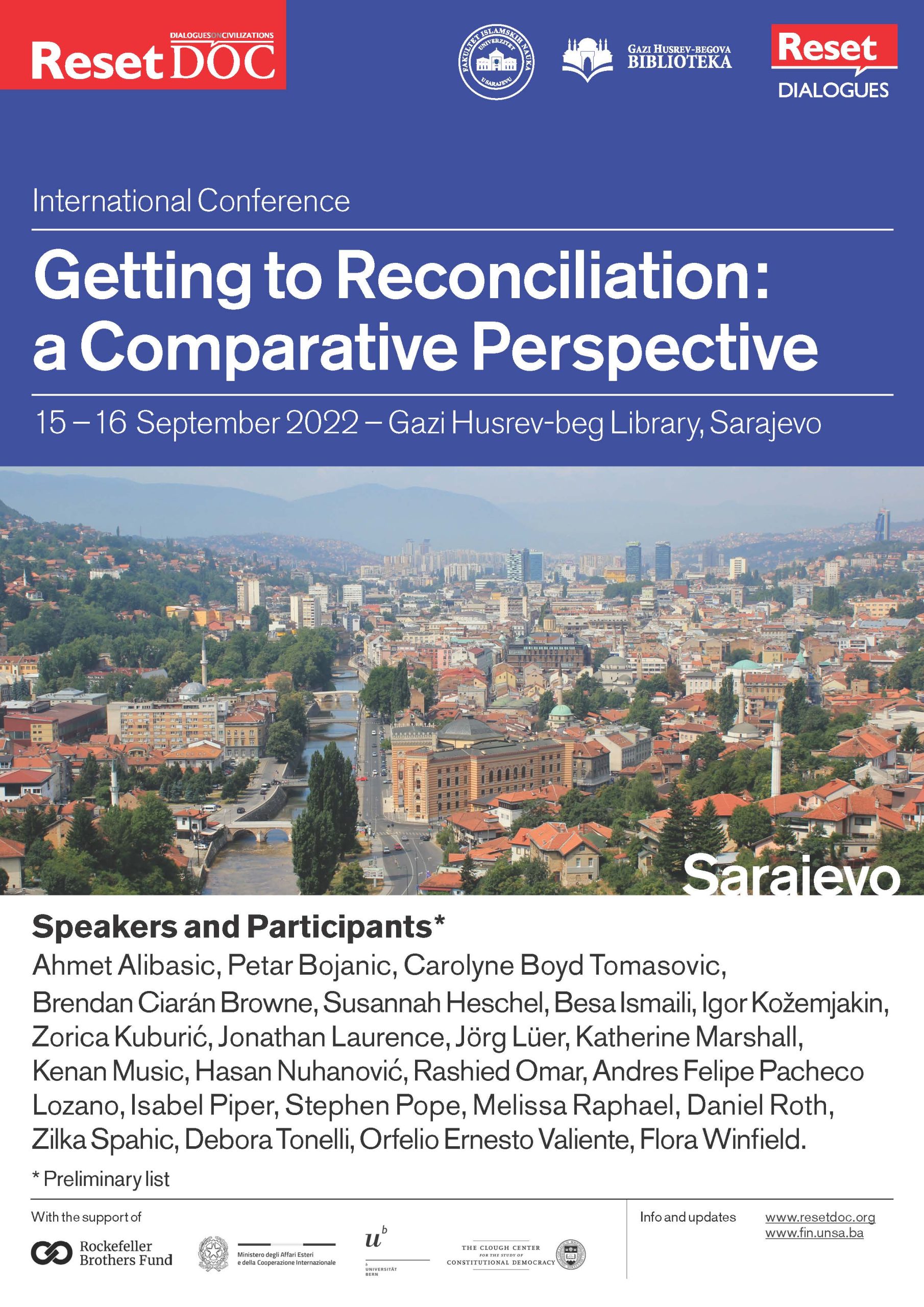International Conference: “Getting to Reconciliation: a Comparative Perspective”

Getting to Reconciliation: A Comparative Perspective
Sarajevo, 15-16 September 2022
An international conference jointly promoted by: Reset Dialogues and the Faculty of Islamic Studies, University of Sarajevo
How do social, religious and political communities foster genuine and lasting reconciliation? What are the viable paths to achieving reconciliation: by way of civil society and social movements, or via diplomacy, truth commissions and official declarations? Obviously, religion is not at the origin of all conflicts: secular and other types of ideologies share responsibility for instigating and perpetuating painful group experiences that call for redress. When state and religion were intertwined, or in times of war and repression, “reconciliation” frequently meant forced assimilation. Despite having inspired or justified violence in the past, however, religions may help to bridge the chasms they once welcomed and to heal wounds inflicted in their name. But they may also exacerbate and reopen grievances. Politics can safeguard the space for reconciliation to take place but has its own shortcomings: the legitimacy of the underlying political regimes interacts with these processes, and can aid or impede the State in the role of neutral broker. And State actors can themselves form an obstacle to reconciliation. Finally, is there a complementary role for theology in the process of reconstructing identity? Communities may have a capacity for transformation but lack the scholarly resources. How can societies go forward while acknowledging and preserving memories of exile, forced conversion, war or genocide? What seems certain is that the absence of reconciliation can prevent other conversations from taking place. This conference seeks to fill that opening: to identify practical paths to achieving forgiveness and thus moving on.

